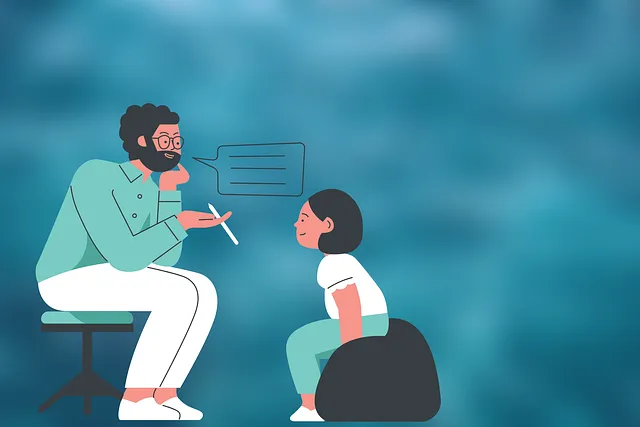The Golden Kaiser Permanente mental health facility offers Social Skills Training (SST), a specialized program using evidence-based practices to enhance social interaction and communication for individuals with mental health conditions. Through risk assessment, personalized modules, role-playing, and a podcast series, SST teaches active listening, nonverbal cues, conflict resolution, and emotional intelligence. These skills empower participants to build healthier relationships, manage emotions, reduce social anxiety, and boost resilience, while also mitigating burnout among mental health professionals.
Social skills training is a powerful tool in managing mental health conditions, fostering better interactions, and enhancing overall well-being. This article explores how structured programs can significantly impact individuals struggling with anxiety, depression, and social withdrawal. We delve into the role of pioneering facilities like Golden Kaiser Permanente, which offer specialized care, and examine effective training strategies for clinical settings. Additionally, we discuss the benefits and challenges of implementing these programs, highlighting their potential to revolutionize mental health support.
- Understanding Social Skills Training and its Impact on Mental Health
- The Role of Golden Kaiser Permanente in Mental Health Care
- Effective Strategies for Social Skills Training in a Clinical Setting
- Benefits and Challenges of Implementing Social Skills Training Programs
Understanding Social Skills Training and its Impact on Mental Health

Social Skills Training (SST) is a specialized therapeutic approach designed to enhance social interaction and communication abilities in individuals with mental health conditions. This form of training goes beyond traditional talk therapy by equipping participants with practical, real-world skills to navigate social situations successfully. At renowned facilities like the Golden Kaiser Permanente mental health facility, SST has proven to be a game-changer for many clients.
By focusing on active listening, nonverbal communication, and conflict resolution techniques, SST empowers individuals to build healthier relationships, manage emotions more effectively, and reduce the impact of social anxiety or avoidance. These skills are essential in mitigating burnout among mental health professionals as well, who often face high-stress situations daily. Through role-playing exercises and guided practice, participants learn to assess risks and navigate challenges, fostering a sense of confidence and resilience in their daily lives.
The Role of Golden Kaiser Permanente in Mental Health Care

Golden Kaiser Permanente stands as a beacon in the realm of mental health care, offering specialized facilities tailored to address diverse psychological needs. As a leading provider, they recognize that mental health is intricately linked to overall well-being, and their approach focuses on holistic treatment. The mental health facility leverages evidence-based practices to provide comprehensive support, focusing not only on symptoms but also on empowering individuals with essential confidence boosting, communication strategies, and emotional intelligence.
Through a multi-faceted program, Golden Kaiser Permanente fosters an environment conducive to learning and growth. Their skilled professionals guide patients through various therapeutic techniques, enabling them to navigate social interactions with newfound ease and confidence. By integrating these crucial skills, the facility ensures that individuals equipped with communication strategies and emotional intelligence are better prepared to face daily challenges, fostering a sense of stability and resilience.
Effective Strategies for Social Skills Training in a Clinical Setting

At the Golden Kaiser Permanente mental health facility, social skills training takes a structured and tailored approach, leveraging evidence-based techniques for optimal effectiveness. The process begins with a comprehensive Risk Assessment for Mental Health Professionals, identifying areas where skill development is most needed. This assessment guides the creation of personalized training modules that cater to individual strengths and challenges.
Resilience building is a cornerstone of this program, teaching participants coping strategies and effective communication methods to navigate social interactions confidently. The mental wellness podcast series production serves as an innovative tool, offering real-world scenarios and role-play exercises that simulate typical social situations. This immersive learning experience enhances practical skill acquisition, empowering individuals to apply their knowledge in clinical settings and beyond.
Benefits and Challenges of Implementing Social Skills Training Programs

Social Skills Training Programs offer a multitude of benefits for individuals navigating mental health conditions at facilities like the Golden Kaiser Permanente mental health facility. By providing structured environments and guided practices, these programs empower participants to enhance their communication, interaction, and relationship-building abilities. This is particularly crucial in fostering social connections, reducing feelings of isolation, and promoting better emotional regulation, as many mental health challenges can hinder these essential aspects of well-being.
Despite their advantages, implementing such training comes with its own set of challenges. Designing curricula that cater to diverse needs and learning styles requires careful consideration. Additionally, ensuring the safety and comfort of participants, especially those with complex trauma histories, is paramount. Effective Trauma Support Services within these programs must address past traumas while boosting confidence and teaching healthy emotional regulation strategies. Balancing these aspects demands skilled facilitators and a tailored approach to maximize the benefits for all participants.
Social skills training is a valuable tool within mental health care, as evidenced by initiatives at leading facilities like Golden Kaiser Permanente. By incorporating strategies tailored for clinical settings, these programs offer substantial benefits to patients, helping them navigate social interactions with greater confidence and ease. While challenges exist, ongoing implementation and refinement of these training methods can significantly enhance the overall well-being of individuals managing mental health conditions, fostering more inclusive and supportive communities within and beyond Golden Kaiser Permanente mental health facilities.






